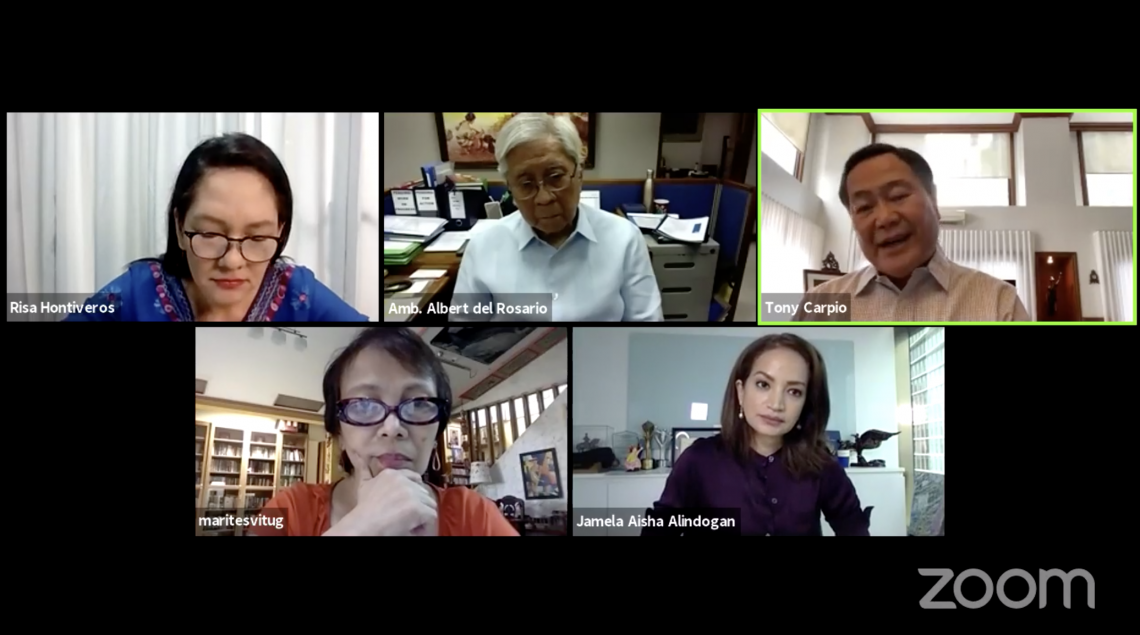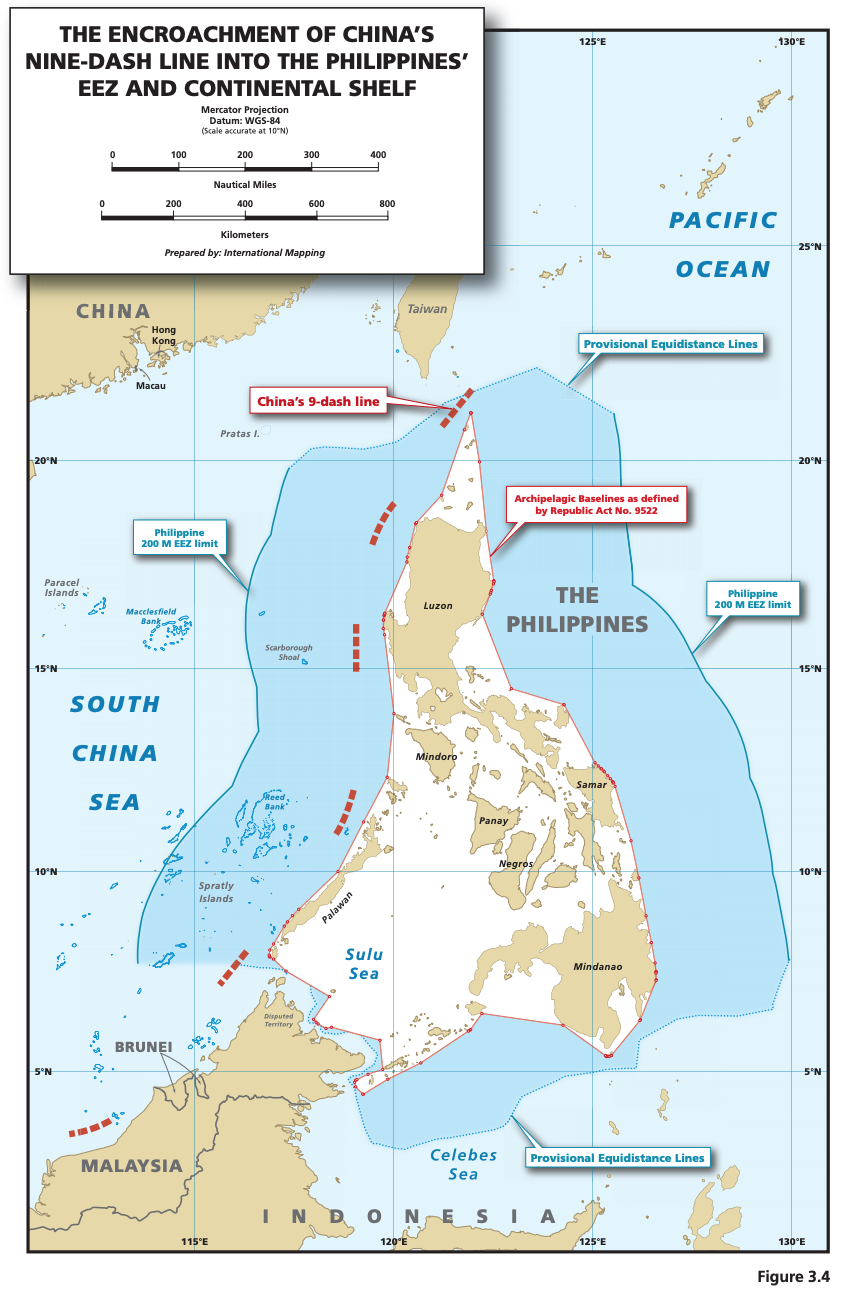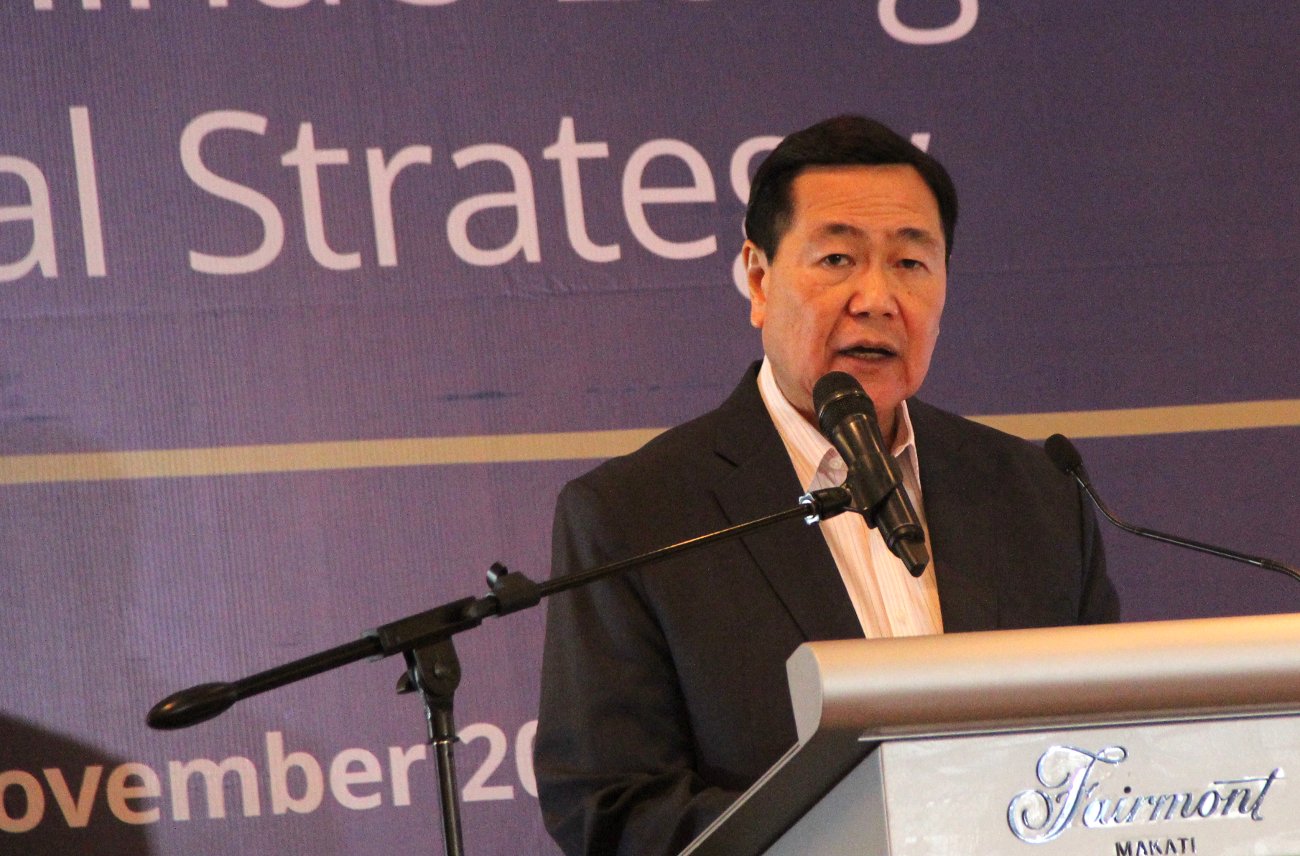Several options are available to the government to assert its rights over the West Philippine Sea and fortify the arbitral tribunal’s 2016 ruling on the territorial dispute, but the Duterte administration has chosen to not do anything because it doesn’t want to displease China, retired Supreme Court associate justice Antonio Carpio said in an online forum.
“[T]he way I see it now, there’s really no strategic plan. The plan of the government is just to freeze the arbitral ruling, not to raise it. But there are so many things that we can do,” said Carpio, a staunch defender of the country’s ownership of the disputed West Philippine Sea.
For instance, he said, the government can enter into an agreement with Vietnam and Malaysia and declare that there are no geologic features in the Spratly Islands that generate an exclusive economic zone (EEZ), and are only part of the countries’ territorial seas. This would “fortify the [PCA] ruling” and “enforce [it] by state practice,” he added.
“It’s strange because the Vietnamese government and the Malaysian government are now willing to sign an agreement [with the Philippines on the matter] but our own government doesn’t want to” given the warm ties it has nurtured with China, Carpio said during a webinar, “Atin ang Pinas! Defending the Philippines in the time of Covid-19,” on June 8.

Carpio (upper rightmost) speaks at the “Atin ang Pinas” forum with former Foreign Affairs Secretary Albert del Rosario (upper middle) and journalist Marites Vitug (lower left). The forum, hosted by Sen. Risa Hontiveros (upper leftmost), was moderated by journalist Jamela Alindogan (lower right). Screenshot from Hontiveros’ official Facebook page.
The 2016 historic ruling of the Permanent Court of Arbitration (PCA) in The Hague recognized the country’s sovereign rights over the West Philippine Sea, waters in the South China Sea within the Philippines’ 370-kilometer exclusive economic zone.
Carpio said the agreement can be further expanded by allowing the naval powers of the world — such as the United States, United Kingdom, and France — to conduct freedom of navigation operations in the maritime area to “refute” and “debunk” China’s claim.
He underscored the importance of working with other countries to “put up a common front against China because when we are not united, China will just simply pick us up one-by-one, and [it] will be easier for China to enforce the nine-dash line.”
Another thing the government can do is to file the Philippines’ extended continental shelf claim in the coast of Luzon, facing the South China Sea “but we’re not doing it” because, again, “this government does not want to displease China,” the former justice said.
“Our problem today is that our government simply doesn’t want to displease China,” Carpio said in the forum hosted by Sen. Risa Hontiveros and also participated in by former secretary of Foreign Affairs Albert Del Rosario and journalist Marites Vitug.
In view of the Duterte administration’s refusal to assert the country’s claims over the West Philippine Sea despite the 2016 landmark ruling of the arbitral tribunal, Carpio said this ought to be a major election issue come 2022 elections.
“We must vote for a government that will assert and preserve our sovereign rights in the West Philippine Sea,” Carpio said. “Vote for a candidate that will raise [this] as an issue.”
Currently, he said, the Philippine government has “no long-term plan” to counter China’s strategy in asserting its nine-dash line claim in the South China Sea, which has already been proven to have “no legal basis.”
China’s continuous encroachment in the West Philippine Sea, “while we’re busy fighting COVID-19,” is part of its “plan of action” that has been in place since the 1940s, he noted.
The nine-dash line claim covers almost 80 percent of the South China Sea, including maritime zones of the Philippines, Vietnam, Malaysia, Brunei, and Indonesia. This was invalidated by the Hague-based PCA in 2016 when it ruled in favor of the Philippines on the South China Sea dispute. (See PH wins: Arbitral court invalidates China’s 9-dash line)
China, however, has ignored the ruling and instead continued to seize and exercise control over various geological features, as well as reclaimed and constructed artificial islands in the disputed waters.
In April, Foreign Affairs Secretary Teodoro Locsin Jr. filed two diplomatic protests against Beijing for two incidents:
- the creation of two new districts under the control of Sansha City, Hainan Province, one of which is the so-called “Nansha District” referring to the Spratly Island Group — part of which falls within the West Philippine Sea; and
- the aiming of a radar gun of a Chinese war ship toward a Philippine navy vessel within Philippine waters. (See VERA FILES FACT CHECK: Lorenzana contradicts military statement on China gun-pointing incident in West PH Sea)
“We have to take this very seriously because China wants to make the nine-dash line as its national boundary, and we will be left with a sliver of water as our territorial sea and exclusive economic zone (EEZ),” said Carpio, who played a crucial role in the country’s victory before the PCA.

Screenshot from The Philippines’ Memorial – Volume I, which was used in its arbitration case against China on the South China Sea
at the Permanent Court of Arbitration
Should this happen, the Philippines “will lose a maritime area larger than our total land area,” he said.
